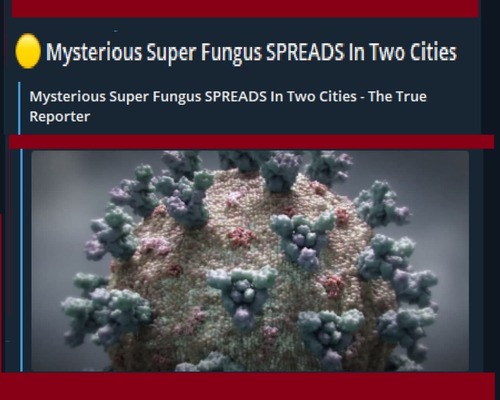

.png)
The outbreak is here…
It is happening in Washington DC and Dallas Texas.
Reports reveal that a “superbug” is spreading inside one nursing home and local hospitals in DC and Dallas.
The situation looks really horrible. Maybe this is an isolated incident. Maybe we are at the beginning of another horror.
Here’s what experts said:
For the first time ever, researchers have reported cases of people carrying or infected with strains of the dangerous fungus Candida auris that were resistant to all classes of antifungal drugs before any treatment. https://t.co/gHqXE3tkgu
— STAT (@statnews) July 22, 2021
As Candida auris outbreaks pop up in various places, we must remember to keep working on developing new antifungals. The azoles and echinocandins continue to be amazing drugs, but we need additional options to prepare for the rapidly approaching future of resistance
— Shmuel Shoham (@ShohamTxID) July 22, 2021
The Associated Press offered more details:
“This is really the first time we’ve started seeing clustering of resistance” in which patients seemed to be getting the infections from each other, said the CDC’s Dr. Meghan Lyman.
The fungus, Candida auris, is a harmful form of yeast that is considered dangerous to hospital and nursing home patients with serious medical problems.
It is most deadly when it enters the bloodstream, heart or brain. Outbreaks in health care facilities have been spurred when the fungus spread through patient contact or on contaminated surfaces.
Axios reported the following:
As detailed in the CDC’s MMWR report Thursday, small, independent clusters of pan-resistant C. auris infections were found from January to April this year: three in D.C. (out of 101 C. auris cases) and two in Texas (out of 22 cases).
“These clusters are the first time where we’re really concerned that it’s spreading,” Lyman says, as none of the patients had been exposed to echinocandin before.
“It’s most likely spread through contaminated health care surfaces, ” she says, which can include anything from beds, to mobile equipment, to shared PPE, to the hands from a health care worker if not properly sanitized.
Plus, not only does the CDC believe C. auris is underreported. But the rising number of known infections overall means there’s a “greater chance of having more resistance pop up,” Lyman says.
Source: WeLoveTrump
